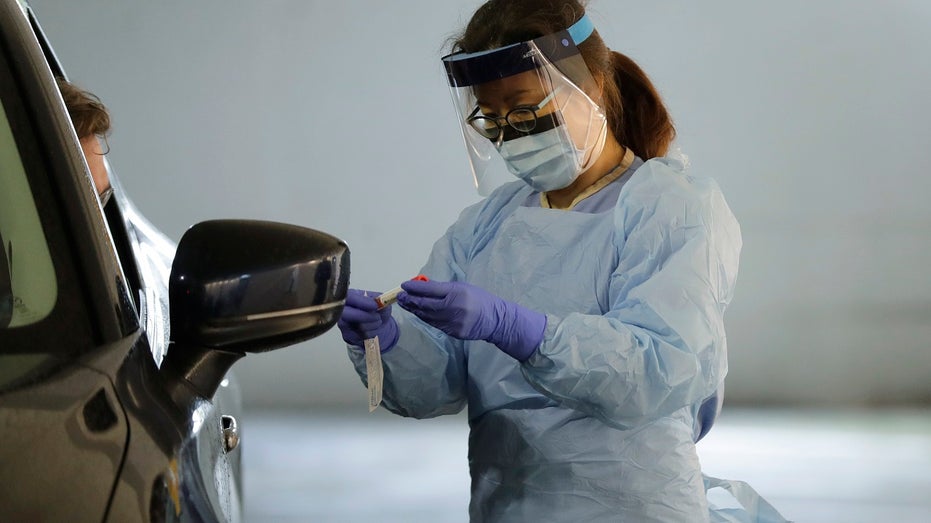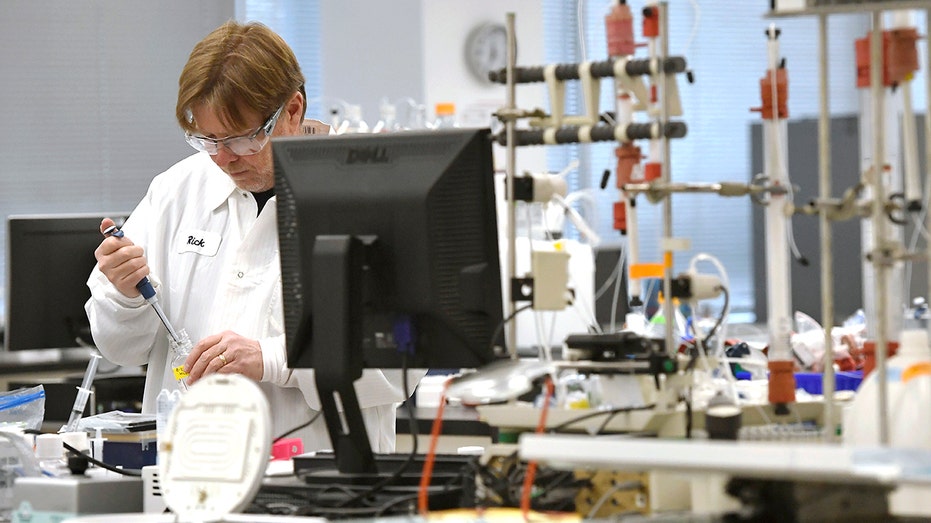Emergency room doctors contract coronavirus
The key issue is preserving hospital capacity
Two emergency room doctors, one in New Jersey and one Washington State, are in critical condition Monday morning due to the new coronavirus.
HOW CORONAVIRUS SPREADS, INFECTS: IMPACT COMES INTO FOCUS
Infectious disease expert at Johns Hopkins Center for Health Security Dr. Amesh Adalja believes things will get worse before they get better.
"We're going to see acceleration of spread and we're going to hear about more cases as we get our testing online," Adalja told FOX Business' Maria Bartiromo.

A nurse at a drive up COVID-19 coronavirus testing station, set up by the University of Washington Medical Center, talks to a person arriving to be tested as they sit in their car Friday in Seattle. (AP Photo/Ted S. Warren)
As of Monday morning, there were more than 3,700 cases of coronavirus reported in 49 U.S. states, plus Washington, D.C., and 68 have died. The only state without reported illness is West Virginia.
CORONAVIRUS SHUTS DOWN BARS NATIONWIDE AFTER REVELERS IGNORE SOCIAL DISTANCING
Adalja said the spread that has been undiagnosed is just coming to light. Research has found that there is an incubation period and some people get sicker in the second week of illness. As a result, there will be more critically-ill patients and more emergency room crowding.

A researcher at Protein Sciences works in a lab Thursday in Meriden, Conn. (AP Photo/Jessica Hill)
"I think the next couple of weeks are going to be really critical to understand what our trajectory is going to be," he said.
Now that testing is accessible coronavirus cases are expected to skyrocket. Social distancing has become a way to stop spread. The Centers for Disease Control and Prevention recommends against gatherings of 50 or more people for the next eight weeks. In response, stores and supermarkets have cut down their hours or completely shut their doors, schools have shut down and events have been canceled.
Adalja believes the act will be very disruptive and something that is being done as a "last-ditch effort" to try and deny the virus and victims to infect.
"The only thing ... we have in our side is the fact that we can actually try and change our behavior in a way to decrease the number of cases and decrease the surge of cases that might overwhelm hospitals," he said.
GET FOX BUSINESS ON THE GO BY CLICKING HERE
Adalja said the main challenge is preserving hospital capacity in order to take care of patients that are sick and in need of intensive care unit beds.
"Our hospitals are always at almost full capacity and we don't have much ability to surge and that's what people are really worried about if we get into a crisis situation," he said.
CLICK HERE TO READ MORE ON FOX BUSINESS
Even so, Adalja the vast majority of Americans who get infected will have mild illness and recover but transmission to older people and those with other medical conditions that may have to be hospitalized may die.
Adalja said from 2017 to 2018 about 80 thousand Americans died from influenza. If the case fatality rate holds at around the expected 1-percent and the virus spreads as widely as it does, we are looking at "10 times that number."




















